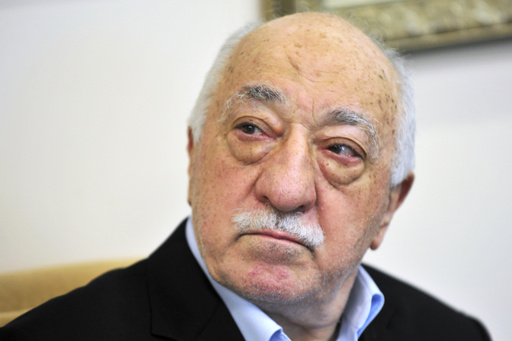
Family, friends, and admirers of Fethullah Gülen are gathering on Thursday to honor the esteemed Turkish spiritual leader and Islamic scholar who passed away this week in self-imposed exile in the United States.
Gülen, who was instrumental in inspiring a worldwide social movement, died Sunday in a hospital in Pennsylvania at the age of 80. His legacy includes unproven allegations of his involvement in the attempted coup against Turkey’s president in 2016.
A memorial service is planned for Thursday afternoon in Sussex County, New Jersey, organized by the Alliance for Shared Values, a New York-based organization advocating for Gülen’s ideals in America. They anticipate that thousands will come to pay their respects.
Following the service, he will be laid to rest in Saylorsburg, Pennsylvania, at the Chestnut Retreat Center where he had resided and worked for twenty-five years. Only a select group of family and close friends will attend the burial ceremony.
“This is a time of great sorrow, contemplation, and prayer,” the organization stated. “Mr. Gülen’s legacy goes beyond his life’s events; he remains a significant religious and intellectual figure whose influence will resonate through future generations.”
Gülen was one of Turkey’s most distinguished scholars, garnering millions of followers both domestically and internationally. Since moving to the United States in 1999 for medical treatment, he has continued to inspire a varied global network of charitable organizations, professional groups, businesses, and educational institutions. This includes 150 charter schools funded by taxpayers across the United States.
Initially, Gülen was an ally of Turkish President Recep Tayyip Erdogan but later became one of his strongest critics. He condemned Erdogan as an authoritarian leader who sought to consolidate power and suppress dissent. In turn, Erdogan branded Gülen a terrorist, accusing him of orchestrating the coup attempt on July 15, 2016, which resulted in the deaths of 251 individuals and injuries to approximately 2,200 others.
In the aftermath of the coup attempt, the reclusive cleric held a press gathering at his Pennsylvania property, firmly denying any involvement or foreknowledge of the event. He expressed that he would not have returned to Turkey even if the coup had succeeded due to fears of persecution and harassment.
“This is a peaceful and clean place; I relish my freedom here,” Gülen remarked about his retreat, an Islamic center founded by Turkish Americans where he chose to settle and ultimately be buried. He also noted, “While my yearning for my homeland is strong, the value of freedom holds equal importance.”
In Turkey, Gülen’s movement, often referred to as Hizmet, meaning “service,” has faced severe governmental repression. Authorities detained tens of thousands of individuals linked to the coup allegations, fired over 130,000 from public sector jobs, and dismissed around 23,000 military personnel. Hundreds of businesses, educational institutions, and media outlets associated with Gülen were also shut down.
In light of his death, the Turkish government affirmed its commitment to pursuing the Gülenist movement. Erdogan described Gülen’s death as a “dishonorable” end and compared him to “a demon in human form,” asserting that the movement must be completely eradicated.
Notably, Gülen was never prosecuted in the United States, and the U.S. government has denied Turkey’s requests to extradite him. Throughout his life, he consistently denounced all forms of terrorism, including those associated with the coup.
